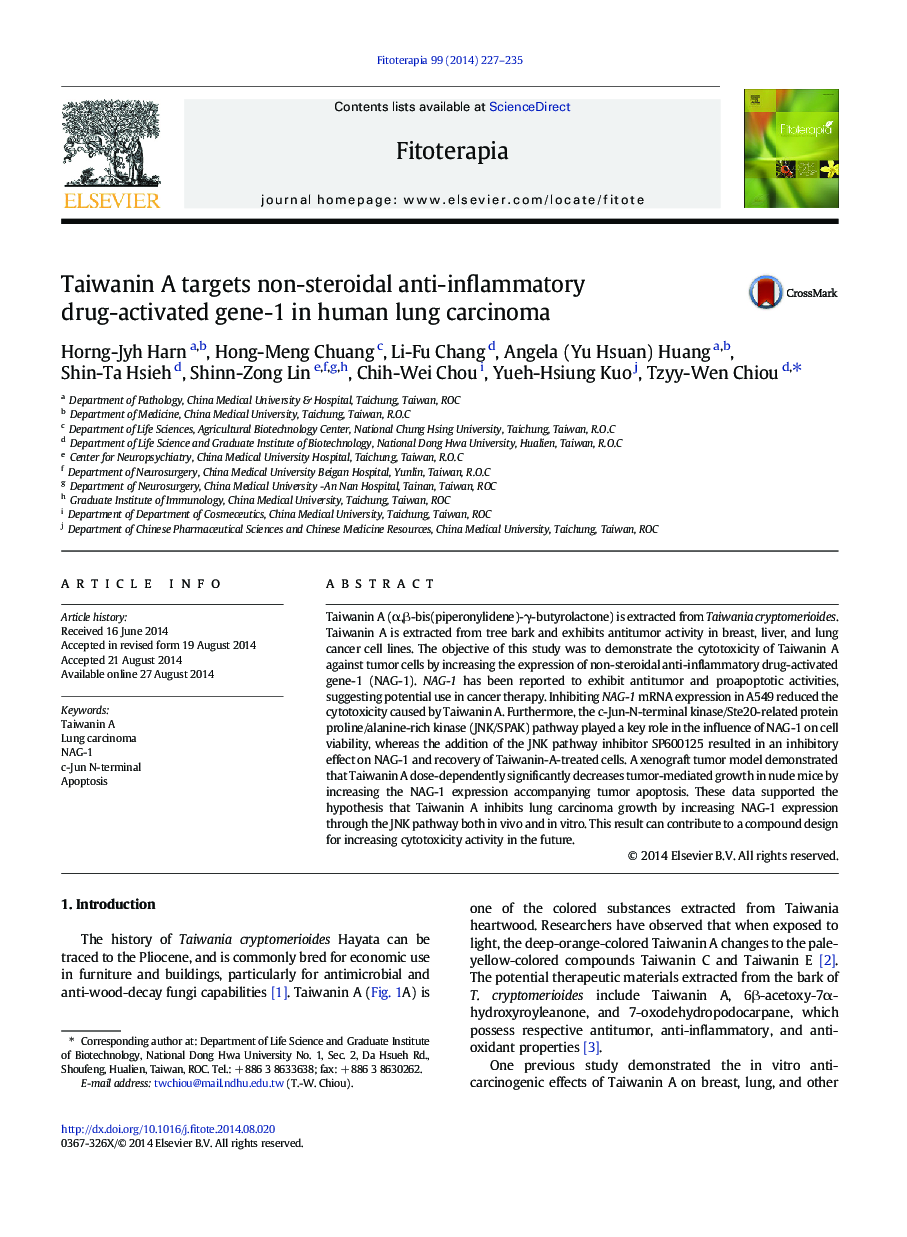| کد مقاله | کد نشریه | سال انتشار | مقاله انگلیسی | نسخه تمام متن |
|---|---|---|---|---|
| 2538482 | 1559646 | 2014 | 9 صفحه PDF | دانلود رایگان |
Taiwanin A (α,β-bis(piperonylidene)-γ-butyrolactone) is extracted from Taiwania cryptomerioides. Taiwanin A is extracted from tree bark and exhibits antitumor activity in breast, liver, and lung cancer cell lines. The objective of this study was to demonstrate the cytotoxicity of Taiwanin A against tumor cells by increasing the expression of non-steroidal anti-inflammatory drug-activated gene-1 (NAG-1). NAG-1 has been reported to exhibit antitumor and proapoptotic activities, suggesting potential use in cancer therapy. Inhibiting NAG-1 mRNA expression in A549 reduced the cytotoxicity caused by Taiwanin A. Furthermore, the c-Jun-N-terminal kinase/Ste20-related protein proline/alanine-rich kinase (JNK/SPAK) pathway played a key role in the influence of NAG-1 on cell viability, whereas the addition of the JNK pathway inhibitor SP600125 resulted in an inhibitory effect on NAG-1 and recovery of Taiwanin-A-treated cells. A xenograft tumor model demonstrated that Taiwanin A dose-dependently significantly decreases tumor-mediated growth in nude mice by increasing the NAG-1 expression accompanying tumor apoptosis. These data supported the hypothesis that Taiwanin A inhibits lung carcinoma growth by increasing NAG-1 expression through the JNK pathway both in vivo and in vitro. This result can contribute to a compound design for increasing cytotoxicity activity in the future.
Figure optionsDownload high-quality image (345 K)Download as PowerPoint slide
Journal: Fitoterapia - Volume 99, December 2014, Pages 227–235
